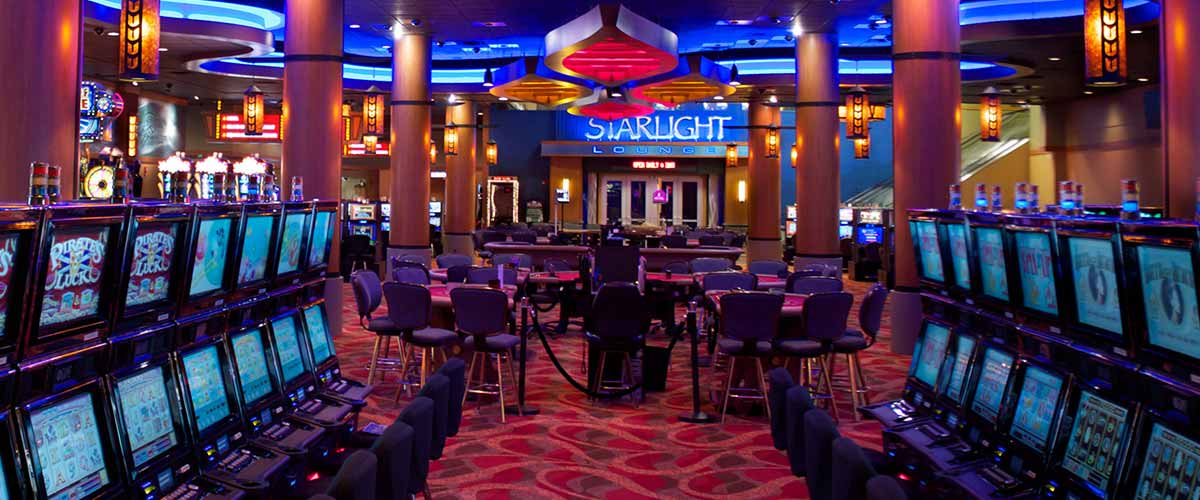
Gambling in casinos has long been a subject of fascination and controversy, drawing in millions of players globally. With a blend of chance, strategy, and the thrill of uncertainty, casino games offer an exhilarating escape from everyday life. However, as entertainment becomes ever more accessible, it calls for a more thorough examination of the ethical implications surrounding these games.
At the heart of the discussion lies the issue of whether casinos promote responsible gaming or take advantage of at-risk individuals. The appeal of potential winnings versus the reality of losses can create a complex situation, and understanding this balance is crucial for both players and operators. As we delve into the morals of casino gaming, we will explore the duties of casinos, the effects on society, and the steps that can be taken to foster a better gaming environment.
The Impact of Casino Gaming on Society
Casino gaming has a significant influence on the community, affecting not only the financial landscape but also interpersonal dynamics and local frameworks. F88BET The revenue generated from casinos can lead to job creation and boost regional economies, as they provide various employment opportunities in multiple fields including hospitality, entertainment, and retail. However, while the economic advantages can be substantial, communities often struggle with the potential negative impacts that arise from increased gambling activity.
Additionally, the presence of casinos can lead to an increase in gambling addiction, presenting serious challenges for individuals and families. The excitement of casino games can quickly evolve into a habitual habit, affecting personal relationships and leading to monetary issues. Many players may find it difficult with the loss of control over their gambling habits, resulting in a need for assistance programs and help to address this growing issue. The social cost of gambling addiction can extend through kinships and neighborhoods, creating an urgent need for responsible gaming initiatives.
In addition to the economic and social ramifications, casino gaming often showcases cultural attitudes towards uncertainty and leisure. It can encourage a sense of joy and leisure, attracting visitors and boosting tourism. However, this allure may also mask the wider implications of gambling as a method of entertainment, raising ethical questions about its promotion and accessibility. As communities weigh the benefits and drawbacks of casino gaming, the need for sensible approaches and oversight becomes increasingly critical in ensuring that the beneficial elements are maximized while reducing the potential harms.
Ethical Issues in Gambling Practices
The morality of casino operations often center around the risk for dependency and its consequences on individuals and households. Gambling can lead to significant monetary distress, impacting not only the betters but also their families. As individuals become caught in the appeal of winning, many lose sight of their budget, which can result in catastrophic results such as insolvency. This poses moral questions about the duty of casinos in promoting responsible gaming practices and providing support for those who may be struggling with betting addiction.
Another critical issue is the advertising of betting to at-risk populations. Gambling establishments often aim at low-income individuals or communities with the promise of quick gains, which can perpetuate cycles of poverty and despair. In this situation, the ethics of marketing strategies used by casinos come under scrutiny, as they may exploit the desperation of individuals seeking an escape from economic troubles. This exploitation raises ethical questions about the integrity of the gambling industry and its responsibility to protect its most at-risk patrons.
Additionally, the impact of gambling gaming on the community as a whole cannot be ignored. Nạp tiền F8BET While some argue that gambling establishments create jobs and boost local economies, others point to the social costs associated with problem betting, increased crime rates, and a burden on public resources. Balancing economic benefits with the risk for community issues presents a complex ethical dilemma for lawmakers and gambling operators alike. The challenge lies in finding a responsible approach that prioritizes the welfare of individuals and communities while still permitting for the enjoyment of gambling activities.
Regulatory Structure and Obligations
The legal framework surrounding casino activities is developed to ensure equity, integrity, and player protection. Different government agencies and gaming commissions create and apply regulations that dictate how gambling operations function, the guidelines for activity creation, and the procedures for processing winnings. These regulations change by region but typically involve licensing requirements for operators and stringent measures to avoid cheating and fraud.
In also to regulatory bodies, gaming operators bear major duty in maintaining principled standards within their establishments. They must enforce safe player practices that support participant security and awareness, including offering self-limitation options and offering information about the risks connected to gambling. Operators are also responsible for educating staff to recognize signs of compulsive gaming and be aware of the correct actions to help customers in distress.
Furthermore, clarity in casino operations is essential for gaining and preserving public confidence. Operators should present clear details about the chances of games, marketing deals, and any associated hazards. By fostering an culture of integrity and responsibility, operators can help mitigate the possible adverse impact of betting while improving the general gaming experience for all gamblers.
